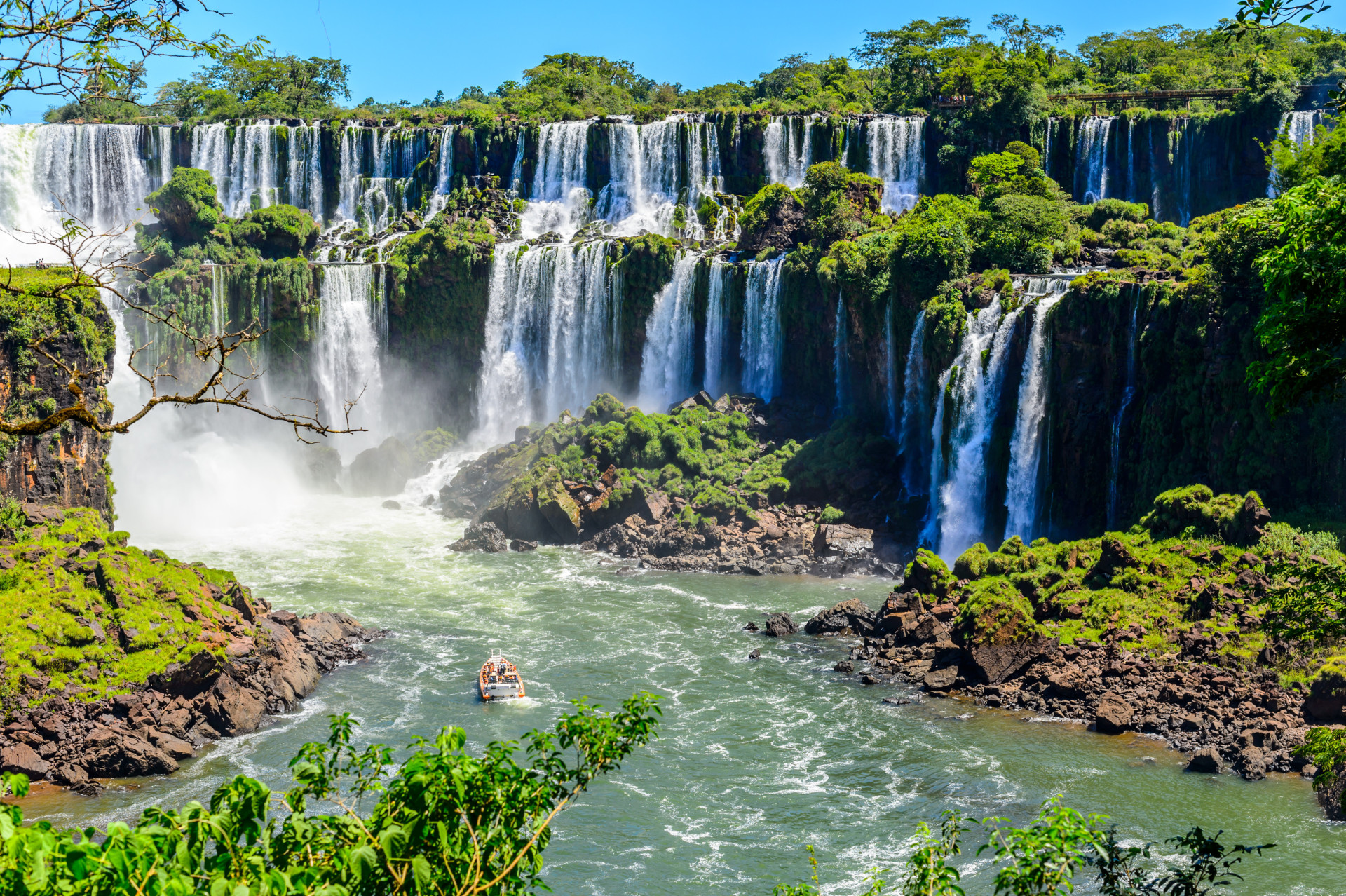Ecotourism countries are at the forefront of a transformative movement that harmoniously intertwines environmental conservation, economic empowerment, and cultural preservation. Join us as we delve into the fascinating world of these destinations, where responsible travel practices create a ripple effect that benefits both nature and humanity.
Ecotourism not only protects pristine ecosystems but also generates substantial economic opportunities for local communities. It empowers them to sustainably manage their natural resources, ensuring a brighter future for generations to come.
Environmental Conservation Practices in Ecotourism Destinations
Ecotourism destinations prioritize the protection and preservation of natural ecosystems while promoting sustainable tourism practices. Stringent regulations and policies are implemented to minimize environmental impact and ensure the longevity of these fragile environments.
Waste Management
Innovative waste management systems are crucial in ecotourism destinations. Biodegradable waste is composted or recycled, reducing the amount of waste sent to landfills. Advanced wastewater treatment plants ensure that wastewater is treated to high standards before being released back into the environment.
Energy Efficiency
Energy efficiency measures are implemented to reduce the carbon footprint of ecotourism destinations. Energy-efficient lighting, appliances, and building materials are used to minimize energy consumption. Renewable energy sources, such as solar and wind power, are often utilized to power facilities and reduce reliance on fossil fuels.
Conservation Efforts
Conservation efforts focus on protecting and restoring natural habitats and wildlife populations. Protected areas are established to safeguard sensitive ecosystems, and programs are implemented to monitor and protect endangered species. Sustainable fishing practices ensure the conservation of marine resources, while reforestation initiatives aim to restore degraded ecosystems.
Examine how ecotourism travel agency can boost performance in your area.
Economic Benefits of Ecotourism: Ecotourism Countries
Ecotourism brings substantial economic benefits to local communities and national economies. It generates revenue and creates jobs, contributing to sustainable livelihoods and economic development.
Job Creation and Revenue Generation
Ecotourism creates various job opportunities in areas such as tour guiding, hospitality, transportation, and conservation. These jobs provide income and support local businesses, boosting economic activity in rural and remote regions. Additionally, revenue generated from ecotourism fees, accommodation, and activities directly supports conservation efforts and community development projects.
Sustainable Livelihoods and Economic Development
Ecotourism promotes sustainable livelihoods by providing alternative income sources for local communities, reducing reliance on unsustainable practices like logging or overfishing. It also supports economic development by stimulating investment in infrastructure, education, and healthcare, improving the quality of life for local residents.
Cultural Immersion and Heritage Preservation
Cultural immersion and heritage preservation are integral aspects of ecotourism experiences. Ecotourism provides a platform for travelers to engage with local communities, learn about their traditions, and appreciate their cultural heritage. This interaction fosters mutual understanding, breaks down stereotypes, and promotes respect for diverse cultures.Moreover, ecotourism can contribute to the revitalization and protection of traditional practices, customs, and cultural heritage.
By creating economic incentives for communities to preserve their cultural assets, ecotourism can help ensure their continuity for future generations.
Case Studies of Successful Ecotourism Initiatives
Numerous ecotourism initiatives worldwide have successfully fostered cultural understanding and preservation. For instance, the Maasai Mara National Reserve in Kenya has implemented a community-based tourism program that allows visitors to experience Maasai culture firsthand. This program has not only provided economic benefits to the Maasai community but has also helped preserve their traditional way of life.Another example is the Great Barrier Reef in Australia, where indigenous rangers lead guided tours that share their knowledge of the reef’s ecosystem and cultural significance.
These tours promote cultural understanding and contribute to the preservation of the reef’s cultural heritage.
Education and Awareness through Ecotourism
Ecotourism provides a unique platform for environmental education and awareness. By immersing travelers in natural ecosystems, ecotourism experiences foster a deeper understanding of the interconnectedness of life and the fragility of our planet.Through guided tours, interactive exhibits, and educational materials, ecotourism operators can effectively communicate complex environmental concepts in an engaging and accessible manner.
Further details about can tourism be sustainable is accessible to provide you additional insights.
Visitors gain firsthand knowledge about local flora and fauna, conservation challenges, and the importance of preserving biodiversity.
Conservation Literacy, Ecotourism countries
Ecotourism promotes conservation literacy by educating travelers about the threats facing ecosystems and the actions they can take to protect them. By witnessing the consequences of human activities on the environment, visitors develop a greater appreciation for the need to adopt sustainable practices.Ecotourism experiences can also foster a sense of stewardship and responsibility among travelers.
By understanding the interconnectedness of ecosystems, visitors recognize their role in preserving these valuable resources for future generations.
You also can understand valuable knowledge by exploring sustainable tourism trends.
Responsible Travel Practices
Ecotourism encourages responsible travel practices by educating visitors about the potential impacts of their actions on the environment and local communities. Travelers learn about minimizing their ecological footprint, respecting wildlife, and supporting sustainable businesses.By promoting responsible travel practices, ecotourism helps to ensure that the benefits of tourism are shared equitably and that the environment is protected for future generations.
Obtain recommendations related to how to make tourism sustainable that can assist you today.
Challenges and Best Practices in Ecotourism Management
Ecotourism management faces challenges in balancing conservation, economic development, and cultural preservation. Best practices aim to mitigate these challenges and ensure sustainable tourism.
Challenges:
- Environmental degradation:Mass tourism can strain ecosystems, leading to habitat loss, pollution, and wildlife disturbance.
- Overcrowding:Popular destinations may experience overcrowding, compromising visitor experience and local infrastructure.
- Cultural commodification:Ecotourism can exploit local cultures for commercial gain, leading to cultural erosion and loss of authenticity.
- Economic disparities:Benefits from ecotourism may not be equitably distributed, leading to social tensions and resentment.
Best Practices:
- Carrying capacity assessment:Determine the maximum number of visitors a destination can sustain without compromising its environmental and cultural integrity.
- Environmental impact monitoring:Regularly monitor environmental impacts and adjust tourism practices accordingly to minimize negative effects.
- Community involvement:Engage local communities in tourism planning and decision-making to ensure their cultural preservation and economic benefits.
- Education and awareness:Educate visitors and tourism operators about responsible practices and the importance of conservation.
- Certification and accreditation:Implement certification programs to recognize ecotourism operators that meet sustainability standards.
Closing Notes
As we conclude our exploration of ecotourism countries, it is evident that they serve as beacons of hope for a sustainable future. By embracing responsible travel practices, we can contribute to the preservation of our planet’s biodiversity, support local economies, and foster cultural understanding.
Let us all strive to be mindful travelers, leaving a positive impact on the destinations we visit.
Questions Often Asked
What is the primary goal of ecotourism?
Ecotourism aims to minimize environmental impact while promoting the conservation of natural ecosystems and supporting local communities.
How does ecotourism contribute to economic development?
Ecotourism creates jobs, generates revenue, and supports sustainable livelihoods, particularly in rural areas.
What role does ecotourism play in cultural preservation?
Ecotourism helps preserve traditional practices, customs, and cultural heritage by fostering cultural immersion and understanding.



